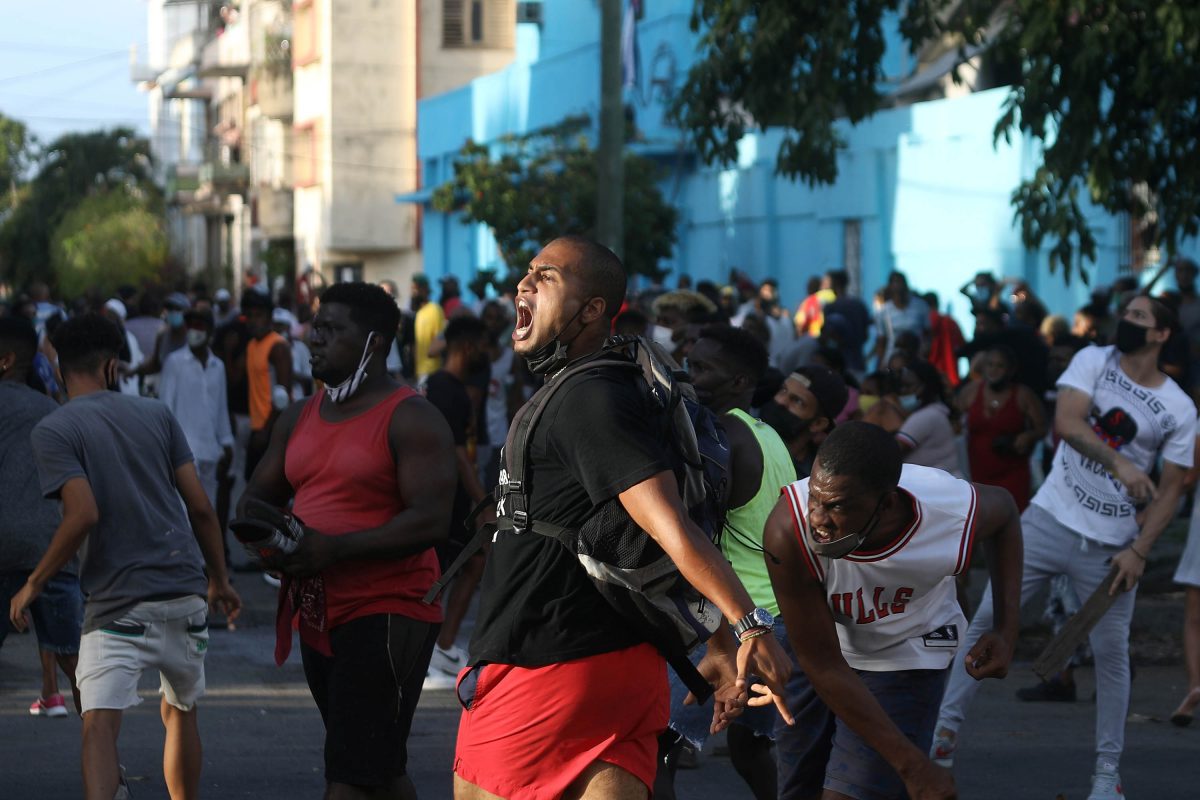Cuba has seen in recent days, the biggest protests in decades as thousands of people took to the streets in the Communist-run country to demand freedom. But they also protest against the severe economic crisis and power outages. The pandemic exacerbated a crisis that has been brewing for years due to the U.S. sanctions against Cuba and, more recently, American sanctions against Cuba’s staunch ally, Venezuela’s Nicolas Maduro. The crumbling Venezuelan oil industry means that less fuel oil from the country sitting on the world’s largest oil reserves is reaching Cuban shores to power the old power plants on the island.
Cuba’s power generation is heavily dependent on oil products – according to the International Energy Agency (IEA), Cuba’s energy supply mainly comes from oil products, which account for more than 80 per cent of power generation.
The U.S sanctions on Venezuela, however, have accelerated the demise of the state-oil firm PDVSA, which is also struggling with outdated equipment at refineries and plants due to years of a lack of investment in maintenance and spare parts. The crumbling of Venezuela’s oil production and oil exports has reduced shipments to Cuba, too. The island doesn’t have enough fuel oil, which has been coming from Venezuela under a barter deal struck between the leaders of the two countries in 2000.
Venezuela is Cuba’s largest oil supplier under a barter deal sealed by the late leaders of the two countries, Hugo Chavez and Fidel Castro. The deal envisaged Cuba getting regular shipments of crude in exchange for its highly trained doctors and other professionals to work in Venezuela.
The tightening of the U.S. sanctions against Maduro’s regime compounded Venezuela’s oil industry troubles, and Cuba became a collateral victim of reduced Venezuelan oil shipments.
Considering that Cuba depends on Venezuelan fuel oil to keep the lights on, insufficient oil supply from Caracas means hours of blackouts because most power plants are old, inefficient, and run on oil products.
Power outages have been among the main reasons for Cuban protests in recent days. People and businesses do not have electricity for hours every day. This adds to the crumbling economy due to the pandemic and missed revenues from tourist arrivals as people avoid travelling to Cuba.
Two weeks before the protests erupted on Sunday, authorities had said at the end of June that there would be nationwide power outages through July 7 due to a failure at the Antonio Guiteras thermoelectric power plant in Matanzas. Just weeks before that, the power plant had undergone planned maintenance.
The reduced shipments of oil from Venezuela, the collapse of the tourism industry, and the pandemic, created a perfect storm in Cuba. Residents demand freedom and the resignation of President Miguel Díaz Canel. Cubans are fed up with economic hardship, severe power outages, food and medicine shortages, and continued suppression of freedom of speech.
Cuba’s economy collapsed by 11 per cent in 2020, according to government estimates. This year, the economic downturn is continuing. Residents in San Antonio de los Baños, which ignited the street protests last week, have been spending 12 hours without electricity per day, the Caracas Chronicles reports.
This is the worst Cubans have seen since the humanitarian crisis in the early 1990s during the so-called Período Especial, which started with the collapse of the Soviet Union and the Council for Mutual Economic Assistance the USSR was leading in Europe’s Eastern bloc and the Socialist and Communist-run states elsewhere, including Cuba.
Authorities in Cuba arrested dozens of people this week after the protests, which are rare in the country, where unauthorized gatherings are illegal. President Díaz Canel said the protests were instigated by the U.S and urged Cuba’s “true revolutionaries” to suppress the protests of the “mercenaries,” which increased violence in Cuban streets.
The protests are unlikely to result in the toppling of the regime in Cuba because the country doesn’t have an alternative political movement that could transition the country into some form of freedom and democracy, the Caracas Chronicle’s Rafael Osío Cabrices says.









